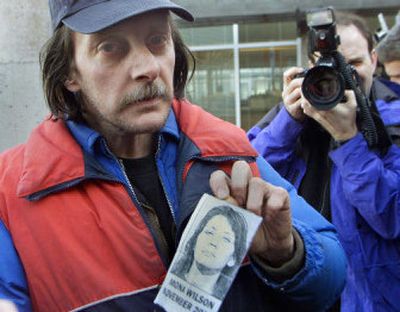Trial to begin in serial killings

VANCOUVER, B.C. – The women began disappearing from Vancouver’s seediest streets in the 1980s, hookers and dope addicts abandoned on the margins of society. Desperate friends and families were outraged when the police appeared to do little to find them.
Now, the man accused of murdering at least 26 of those missing women is going to trial. Jury selection was to begin today for the case against Robert “Willie” Pickton, a pig farmer who, if convicted of all the murders, would become the worst serial killer in Canadian history.
Some 600 potential jurors were being called in today. Justice James Williams has ruled that the trial will be divided into two parts, with the first six counts being considered first.
The gruesome allegations against Pickton fall under a publication ban that prevents the media from revealing details of the alleged crimes until opening statements Jan. 8.
Journalists covering the preliminary hearings have been so haunted by the courtroom revelations that some have sought psychological help.
What can be reported is that Pickton, 56, was arrested in February 2002 by police investigating the disappearances of sex-trade workers from Vancouver’s grubby Downtown Eastside district. Health officials later issued a tainted meat advisory to neighbors who may have bought pork from his farm, concerned the meat may have contained human remains.
Pickton and his brother, Dave, used to throw parties at the hog farm in a barn they dubbed the “Piggy Palace,” telling neighbors they were raising money for charity. Investigators have said the parties were drunken raves with prostitutes and plenty of drugs.
After Pickton was arrested and the first traces of DNA of some missing women were allegedly found on the farm, the buildings were razed and the province spent an estimated $61 million to sift through acres of soil.
Friends and family of the missing women say those who survived tell horror stories about what took place at the 17-acre pig farm outside Vancouver in Port Coquitlam.
“We deal with stories out here that would blow your mind,” said the Rev. Ruth Wright, whose First United Church has a mission in the Downtown Eastside, the most impoverished neighborhood in all of Canada, where the average life span does not even reach 40.
She knew seven of the victims from the neighborhood.
Wright remembers with sadness Sereena Abotsway, a sweet-faced prostitute who was 29 when she disappeared in August 2001, shortly after marching at the front of a parade demanding the city help find the missing women. The first count of murder against Pickton is in her name.
Wright, relatives of the missing women and others who work or live on the streets of the Downtown Eastside say officials ignored them until the media began investigations of their own and relatives protested.
“I knew a lot of the girls who said they went out to Pickton’s to party; that he’d ask them to do weird sexual stuff,” said Deanna Wilvers, a 25-year-old drug user and prostitute. She said she was close to Jacqueline McDonnell, an alleged victim who disappeared at age 22.
Wright and others who have followed the case are angry that other suspects have not been named and that it took so long for Pickton to be charged.
But Constable Catherine Galliford told reporters in March 2002, just after Pickton was arrested, that their resources were limited and the magnitude of the case overwhelming.
“The very sad truth is that horrible things are happening every day to women who work the streets,” she said. “This investigation into missing women is forcing light onto a part of our society that traditionally resides in the very dark shadows.”
The task force investigating the case says 102 women once believed to be missing have been found alive. Sixty-seven women remain on the list, as well as three unidentified DNA profiles from the Pickton farm.
In the courtroom in New Westminster, Pickton has sat day after day for preliminary hearings over the past year in a specially built defendant’s box surrounded by bulletproof glass. The clean-shaven man with a bald crown and shoulder-length hair barely moves, though occasionally he chuckles to himself or scribbles in a notebook.